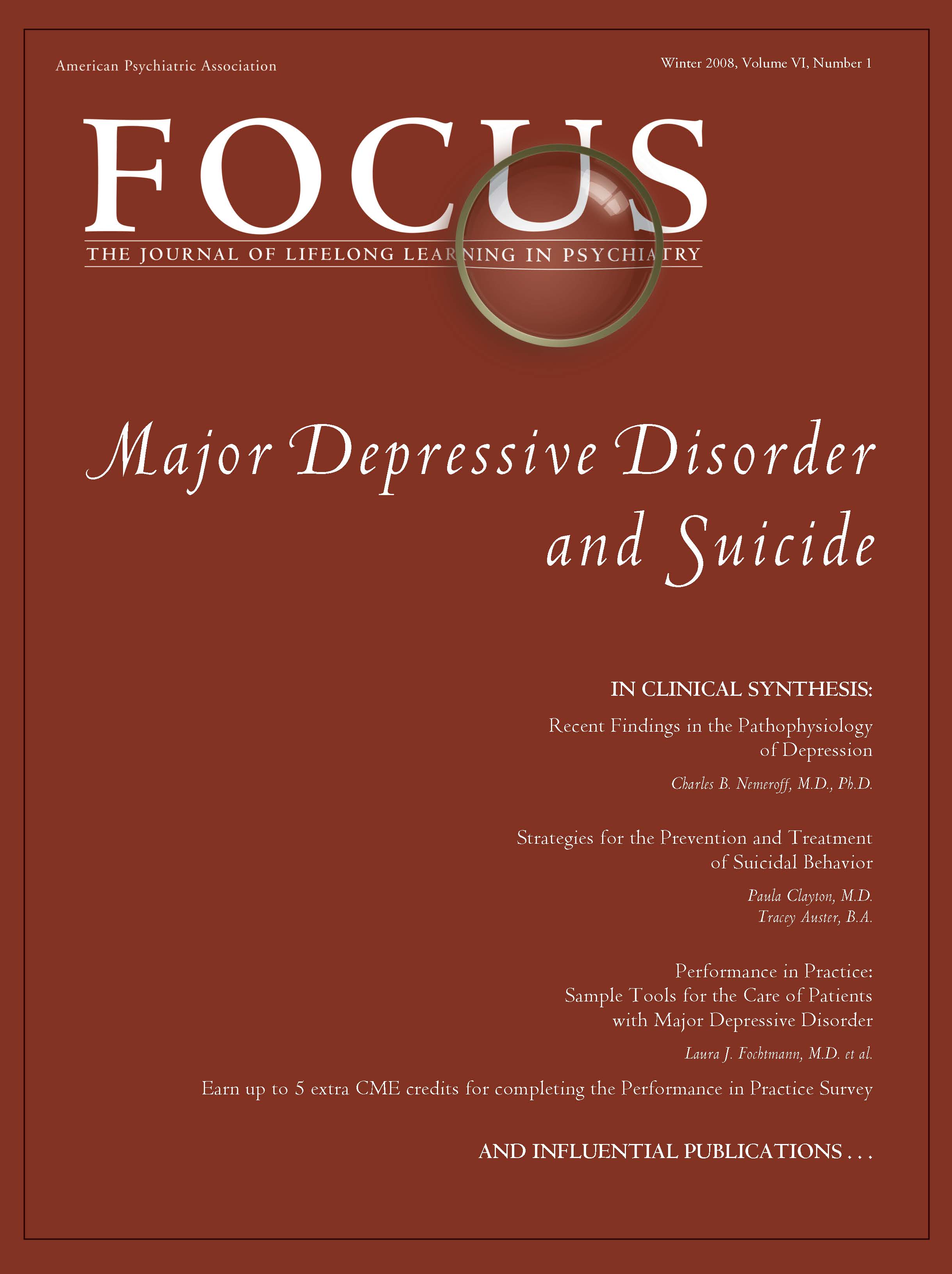Treating Suicidality in Depressive Illness. Part 2: Does Treatment Cure or Cause Suicidality?
Abstract
Objectives:
To systematically review studies of treatment efficacy for suicidality in mood disorders. To consider the evidence for whether antidepressants may induce suicidality. Method: Systematic review of the literature. Results and Conclusions: There is fairly good evidence that lithium reduces completed suicide and attempt rates in people with bipolar disorder and recurrent unipolar depression. Antidepressants and psychological treatments may reduce suicidal ideation in depressed patients. Antidepressant trials do not, however, a priori target suicidality as an outcome, and inferences made are post hoc. For practical reasons, no adequate trials to date have tested the efficacy of treatment aimed at reducing completed suicide in people with depressive disorders. Antidepressants have been implicated in suicide in one metaanalysis (the elderly) and in one case-control study (youth), signalling the need for caution. However, most metaanalyses have found no significant excess of completed suicide among antidepressant users, compared with placebo groups, in adults and juveniles, but excess nonfatal suicidality is found more often in children and adolescents who take antidepressants (except fluoxetine). The controversy is ongoing.
(Reprinted with permission from the Canadian Journal of Psychiatry, 2007; 52 (6 Suppl 1): 85S–191S; full text of the article available online at http://publications.cpa-apc.org/media.php?mid=425)



